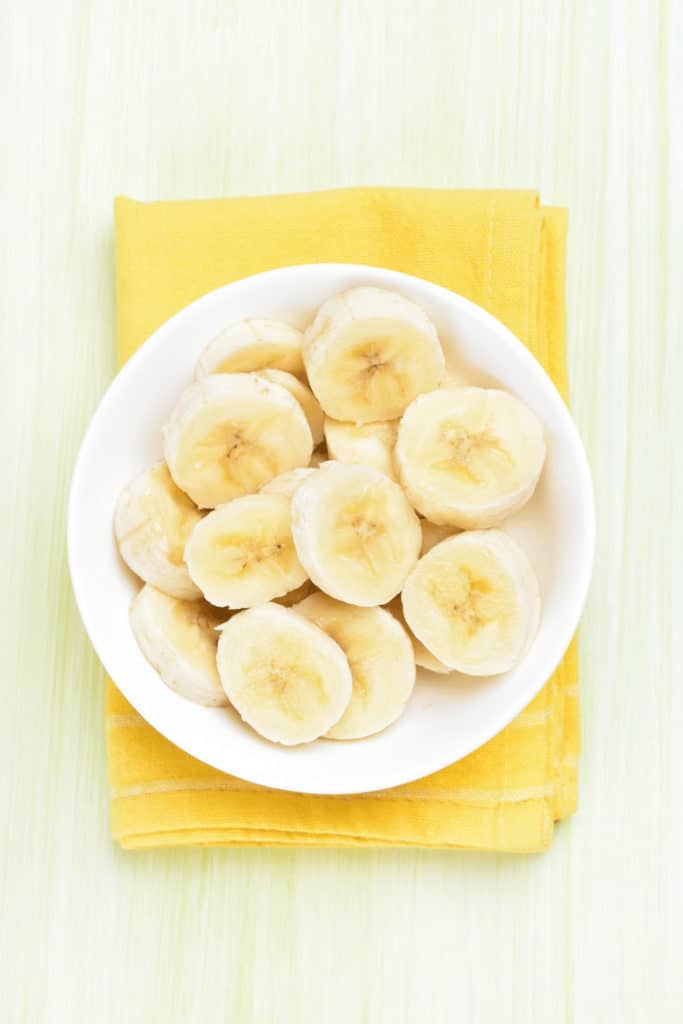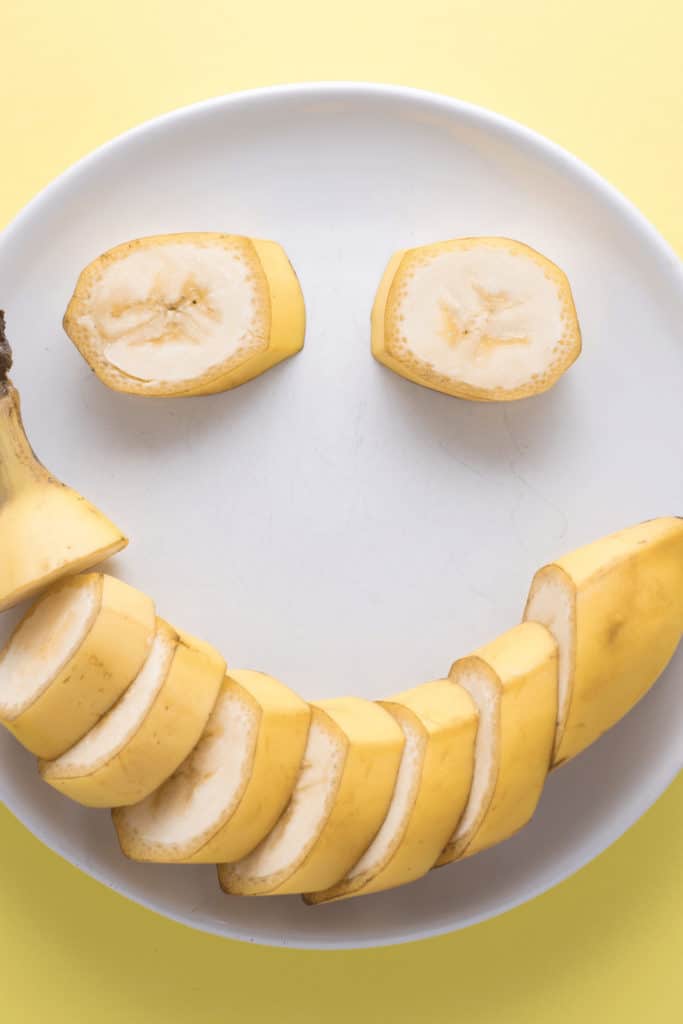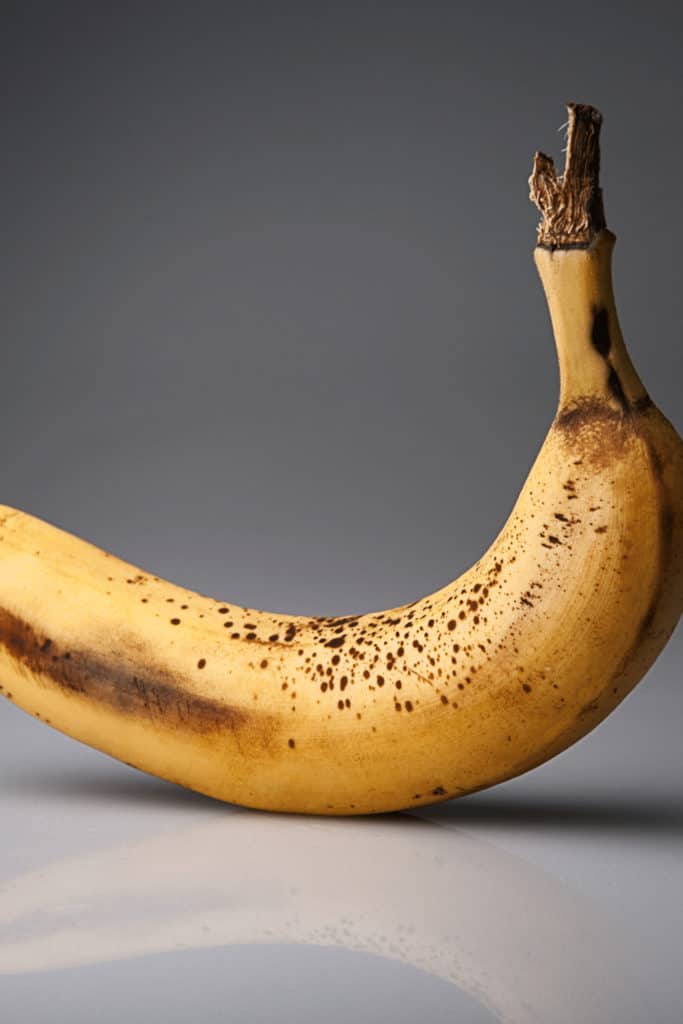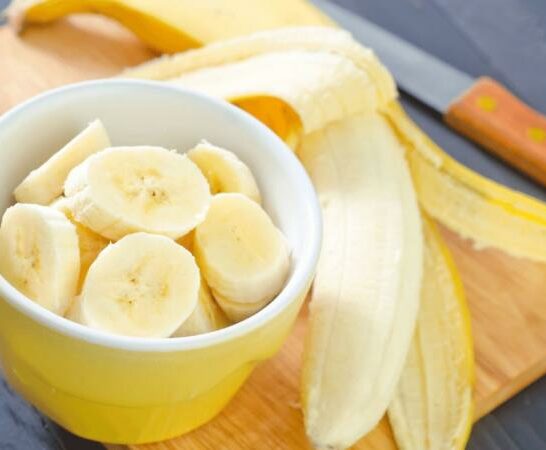Bananas are my favorite fruit.
They are sweet, juicy, and perfectly delicious.
Considered a superfood, bananas should be part of everyone’s diet.
So imagine my concern when I opened a banana and found some strange-looking black spots inside.
What were those spots? Had something happened to the banana, and was this banana still okay to eat?
My local gym has a food bar that’s run by a dietician turned chef, and she was happy to answer all my questions regarding the strange banana.
Our discussion was so interesting that I simply had to share it.
Why Are There Black Spots Inside a Banana?
Bananas can form black spots, and depending on where these are in the banana, these spots can either be seeds or areas that have ripened more. If you notice any surface damage, such as a hole leading to the black spots, then chances are that a worm or banana aphid may have burrowed inside. A black spot here will rot and needs to be cut away. Black seeds or ripened areas are really healthy and safe to eat.

What Causes Black Spots Inside Bananas?
When you peel a ripe banana, you may find several kinds of black spots inside.
Each of these is caused by a different reason, and most are healthy and safe to eat.
Reason One: Ripening Seeds
Most bananas that we buy in stores are specially cultivated, and when they do make seeds, they are infertile.
This means there’s no risk of having a seed sprout in your stomach, which eased my neurotic imagination a lot!
Even wild bananas that have fertile seeds can still be eaten and enjoyed.
The seeds will do nothing, and when these seeds turn black, it is merely an indication of the banana ripening.

Reason Two: Ripening Banana Flesh
Bananas don’t always ripen evenly. Some bananas will form black spots on their skin, and when peeled, you will see black areas inside the banana fruit.
These are simply extra ripe areas. Black ripened areas are not only safe to eat, but these areas are also extra healthy to eat.
While some internet research looked amazing by calling the black ripened spots in bananas richer in “tumor necrosis factor,” and that this can fight off cancer cells, these statements aren’t entirely accurate.
Bananas have indigestible polysaccharides that interact in your stomach with your lymphatic tissues, boosting your immune system against all attacks on the body.
The ripened black spots are higher in the indigestible polysaccharides, making them better at this interaction.

Reason Three: Infestation of Parasitic Organism
Bananas come with their own protective packaging known as their peel.
When this peel is broken by an insect such as an aphid or worm, these organisms gain access to the banana’s soft interior and its feasting time.
Naturally, this area of the banana’s flesh will darken in response to the inflow of oxygen and the destructive organisms eating the flesh.
When exposed to air, an enzyme known as polyphenol oxidase activates the banana’s ripening process exponentially, hence the brown spots around the miniature punctures.
Whether or not it is safe to eat still a banana that has black spots due to a parasitic organism depends on the type of organism.
If the incursion is made by aphids, then the banana is still safe to eat, but it may have a strange taste.
Should it be a worm that burrowed into the flesh, it is best to avoid eating that banana as there may be worm eggs in the banana’s flesh, and it’s better to discard the fruit.

Reason Four: Bruising of the Banana
Bananas are often poorly packaged when being transported from the farm to the store, and when there is excessive pressure on their skin, bruising will happen.
Bruised areas are often exposed to air, and this triggers oxidative ripening of the fruit.
It is perfectly safe to eat this banana as long as there is no presence of an opportunistic organism that may have invaded the tears in the banana peel.
Sadly, a bruised banana will ripen unevenly, so while you may have golden brown to black areas that are ripe, other parts of the banana will still be pale-colored and underripe.
Eating such a banana is not a pleasure, though it is safe to eat this fruit.

Are Black Spotted Bananas Safe to Eat?
Most cases of black spotting in bananas are harmless. It would be perfectly safe to eat this fruit, though it may look strange when a banana is blackened.
If the skin has been pierced, split, or otherwise damaged, it is important to inspect the fruit carefully before eating it.
If you suspect an organism such as aphids or mites or worms may be responsible for the damage, it is safer to compost the fruit and skins instead.
Should the fruit smell strange, sour, or off, there is a chance that mold has set in, and you should definitely not eat the fruit.
How to Prevent Bananas From Forming Black Spots Inside
While black spots from ripening and seeds are harmless to you, they may look strange when you peel the banana.
It’s far better to ripen the fruit evenly, thereby ensuring a consistent texture, taste, and goodness.
Ripening a banana evenly requires the following steps:
- Separate the banana bunch.
- Place all the bananas you want to ripen together in a brown paper bag.
- Add another already ripe banana or apple to the bag.
- Place the bag in a warm area out of the sun.
- Check the bananas daily, turning them in the bag to ensure even ripening.
- When the bananas have ripened evenly, there will be darkened spots all over the bananas’ skins.
- To stop the ripening process, place the bananas in the fridge until you are ready to use them.
Frequently Asked Questions About Why Are There Black Spots Inside a Banana
Is it OK to eat a banana with black spots on it?
You can eat a banana with black spots on the skin or in the flesh if there is no sign of aphids, worms, or mold on the fruit.
Are the black seeds in bananas poisonous?
Banana seeds are not poisonous and can be safely eaten.
Are black bananas good for you?
Blackened bananas are rich in antioxidants and immune-boosting compounds, so eating a black or ripe banana is a good source of nutrition.
Conclusion About Why Are There Black Spots Inside a Banana
Before you throw out a ripe banana because it looks black, consider adding it to a smoothie or baking some banana bread instead.
Blacked bananas or bananas that have black spots in them are often the best and most tasty stage of the fruit’s ripening cycle.
I’ve learned to look at black-spotted bananas with new eyes, and while I sipped my smoothie at the gym’s food bar, I knew I was getting all of nature’s best goodness with each mouthful.

